
Resilience Amidst Conflict: Palestinian Environmental Advocates Fight For Nature. Watch PNN Video
As with everything Palestinian, the sector of environmental and nature defenders faces practices from the occupation authorities and settlers. Palestinian activists and defenders of the environment and nature are subjected to attacks and harassment in their efforts to protect nature in Palestine.
Occupation: The Major Threat to Palestinian Nature and Environment
The attacks by the occupation army and settlers on activists working to protect Palestinian nature are not isolated incidents but rather a fundamental part of Israeli occupation policies to control Palestinian lands. The decisions by the so-called Commander of the Central Region in the occupation army to seize Palestinian nature reserves are clear evidence of these policies, accompanied by measures and attacks on the ground that affect Palestinian activists studying and protecting Palestinian nature.
In this context, Sayed Al-Shomali, an activist in the field of Palestinian nature protection and the Executive Director of the Palestine Environment Association, states that they continuously face practices and harassment from the occupation army and settlers. They are subjected to various forms of Israeli procedures, accusations, and pursuits.
Al-Shomali said during a tour with Palestine News Network (PNN) team that after October 7, they felt an increase in Israeli attacks on nature, as well as on them as environmental tour guides and experts working in the field of nature and environment.
He added, "I personally encountered several confrontations when they tried to prevent us from accessing areas we walk in and nature reserves such as the Tekoa Desert, the Jerusalem Wilderness, the Mar Saba area, the northern Jordan Valley, and the water springs in Auja. The army prevents us from reaching the reserves for one purpose: to stop Palestinians from accessing these areas to facilitate their confiscation."
The nature protection activist explained that he was recently attacked by occupation soldiers when he stopped his car near the city of Jericho. He said, "Once, they stopped me on the road and broke all the bird boxes, especially the owl box that I was working to protect. They assaulted me for three hours after detaining me."
He stated that the occupation soldiers accused him of being a military observer simply because he carried binoculars used for observing birds and wildlife. They also accused him of photographing prohibited military areas, clarifying that all these accusations aim to prevent Palestinian nature and environment activists from accessing Palestinian lands and nature reserves.
Al-Shomali highlighted that biodiversity in Palestine faces numerous challenges, the foremost being Israeli settlements that control natural areas and reserves. He also pointed to climate change, overfishing, and environmental pollution.
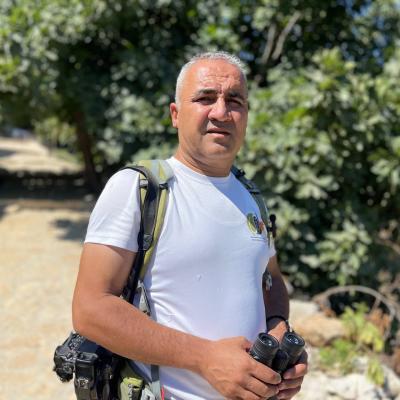
Al-Shomali's Passion for Birds and Biodiversity
Despite all the Israeli obstacles and attacks, Sayed continues his work in bird monitoring, studying, and documenting them. He explained that his passion for bird watching, and biodiversity began early on when he engaged in volunteer work with various organizations dedicated to nature protection. He managed to acquire many books on the study of mammals and birds in Palestine. Throughout his career, he has recorded about 400 species of birds, including six species documented for the first time in the West Bank. He has published several scientific papers and is currently working on a book about the birds of Palestine.
Al-Shomali indicated that his choice of this field was driven by his love for the surrounding nature in Palestine. He wanted to explore and study local birds and animals, understand their migration reasons and diverse colors. His passion led him to delve deeper into studying birds and reptiles in Palestine, which enabled him to document many species across various areas of the West Bank.
Connecting with Nature and Birds
Al-Shomali frequently roams the wilderness to observe birds, insects, and reptiles. Alongside his colleagues, he publishes new scientific papers documenting species found in the West Bank. He also employs night cameras to monitor the movement of animals and mammals, studying their behavior and distribution.
During the tour, Al-Shomali took out a small recorder from his pocket, on which he had recorded the sound of the Palestinian Sunbird. He said he documented it in the Battir area, where he observed a small nest with three chicks, which was filmed by the PNN crew. Al-Shomali noted that the bird resides in the area, and he follows it continuously.
Monitoring Plants and the Importance of Collaboration
Al-Shomali also monitors plants, even though he is not an expert in the field. He studies and shares information he gathers with Palestinian plant experts, emphasizing that biodiversity is interconnected and requires a collective effort from various institutions to serve Palestine's nature and environment.
He gave an example of a plant called "Tafla," a toxic species that grows in Battir. Despite its beautiful flowers, the plant is poisonous and has started to appear in recent years. Al-Shomali highlighted the importance of paying attention to plants and understanding their history, expressing his belief that the plant is not native to Palestine but was introduced many years ago.
Negative External Factors Affecting Palestinian Biodiversity
Al-Shomali explained that Palestine's biodiversity is notable due to its varied climate systems and its location at the crossroads of continents. This geographical and climatic diversity, including mountains, plains, and climates like the Mediterranean and Turanian, makes Palestine rich in biodiversity. Despite its small size, Palestine boasts a unique and globally significant variety of flora and fauna.
However, Al-Shomali highlighted several challenges facing nature in Palestine, foremost among them being Israeli settlements. Israel aims to control natural areas by establishing settlements and asserting control over nature reserves.
Other factors affecting Palestinian nature include climate change, overhunting, overgrazing, and environmental pollution. He also pointed out issues like invasive bird species and plants that have become problematic and difficult to eliminate. Al-Shomali mentioned four invasive bird species: the Mynah, the Rose-ringed Parakeet, the Monk Parakeet, and the Indian Silverbill. These invasive birds disrupt the local avian populations, take over nesting sites, and compete for resources. The Indian Silverbill is particularly problematic as it destroys the nests of native Palestinian birds and consumes their eggs.
Participation in International ConferencesAl-Shomali has participated in numerous international and local conferences where he has spoken about the environment in Palestine. He joined the Global Climate Change Network, which has facilitated the exchange of expertise with countries like Jordan, Syria, and Lebanon.
Al-Shomali stated that he has published several scientific papers, particularly focusing on bird records in Palestine. He expressed pride in documenting new species for Palestine and contributing to both international and local reports on the Palestinian environment. Additionally, he has represented Palestine in global conferences.
Saeed expressed regret that many organizations, ministries, and institutions do not prioritize nature and the environment.
He emphasized the need for greater attention to nature, as it is the reason for our existence. Destroying biodiversity in Palestine equates to destruction for the Palestinian people. Thus, more focus on nature and the environment is essential.
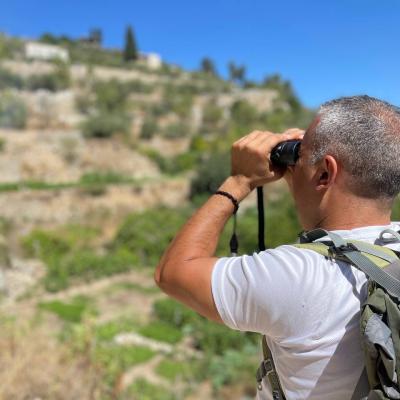
Saeed's Message on Nature Conservation
Saeed aims to preserve the natural environment for future generations and increase research and studies in this field. He is also working to promote eco-tourism in Palestine by raising local community awareness about the importance of environmental conservation. He calls on local communities and authorities to enhance eco-tourism services and environmental guidance. Additionally, he urges institutions and ministries to support environmental efforts and increase student awareness of the importance of nature and the environment in Palestine.
Al-Shomali aspires to leave a scientific legacy that includes books and studies documenting Palestine's biodiversity. He hopes that future researchers will build on his work to achieve further accomplishments in environmental conservation. He said, "My message as Saeed is to aspire to have several books and studies in my name, written and published in Palestine. I aim to document something for Palestine, as I have already documented, and I hope to continue documenting books and studies for future generations."
Despite security challenges and assaults, Saeed continues his work exploring nature reserves. He explained that he faces difficulties from the Israeli occupation, which prevents him from carrying essential equipment like binoculars and cameras. Despite these challenges, Al-Shomali remains committed to his mission of preserving the environment and documenting Palestine's biodiversity.
This story was produced as part of the“#Qarib” program, implemented by the French Agency for Media Development (CFI) in partnership with and funded by the French Development Agency (AFD).
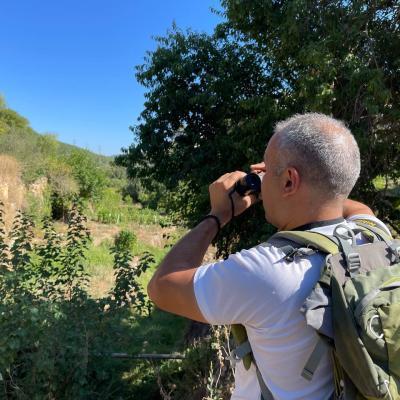
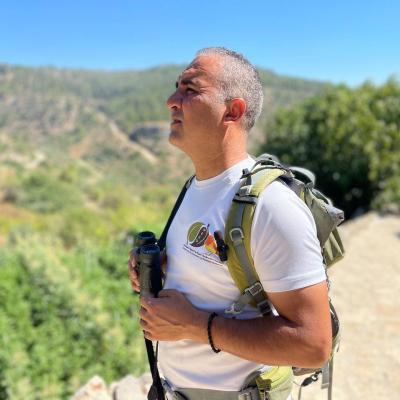
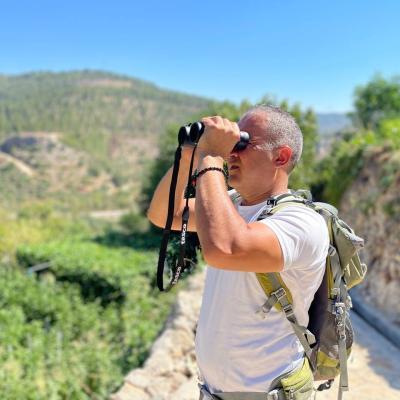
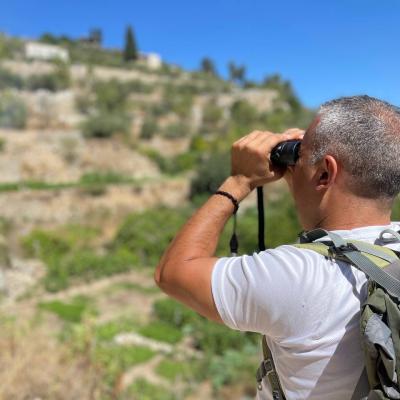
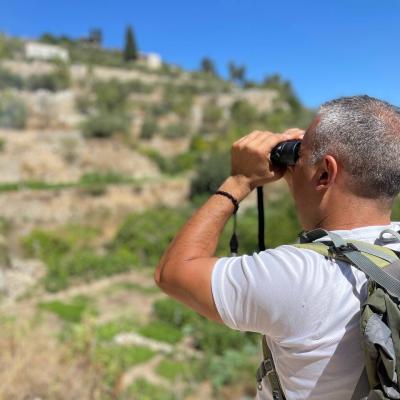
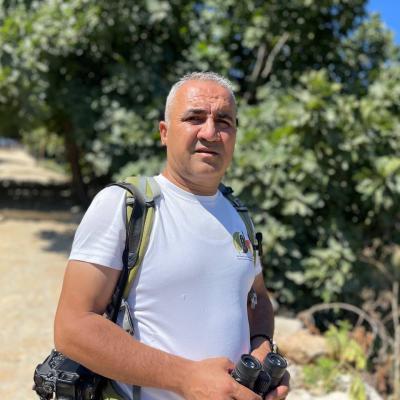
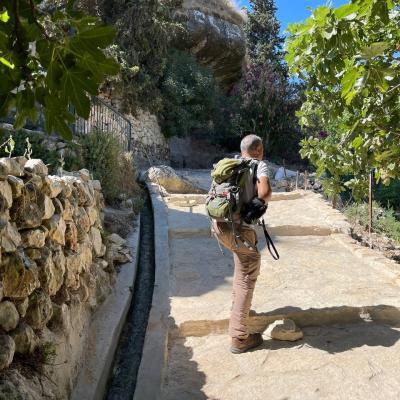
Legal Disclaimer:
MENAFN provides the
information “as is” without warranty of any kind. We do not accept
any responsibility or liability for the accuracy, content, images,
videos, licenses, completeness, legality, or reliability of the information
contained in this article. If you have any complaints or copyright
issues related to this article, kindly contact the provider above.

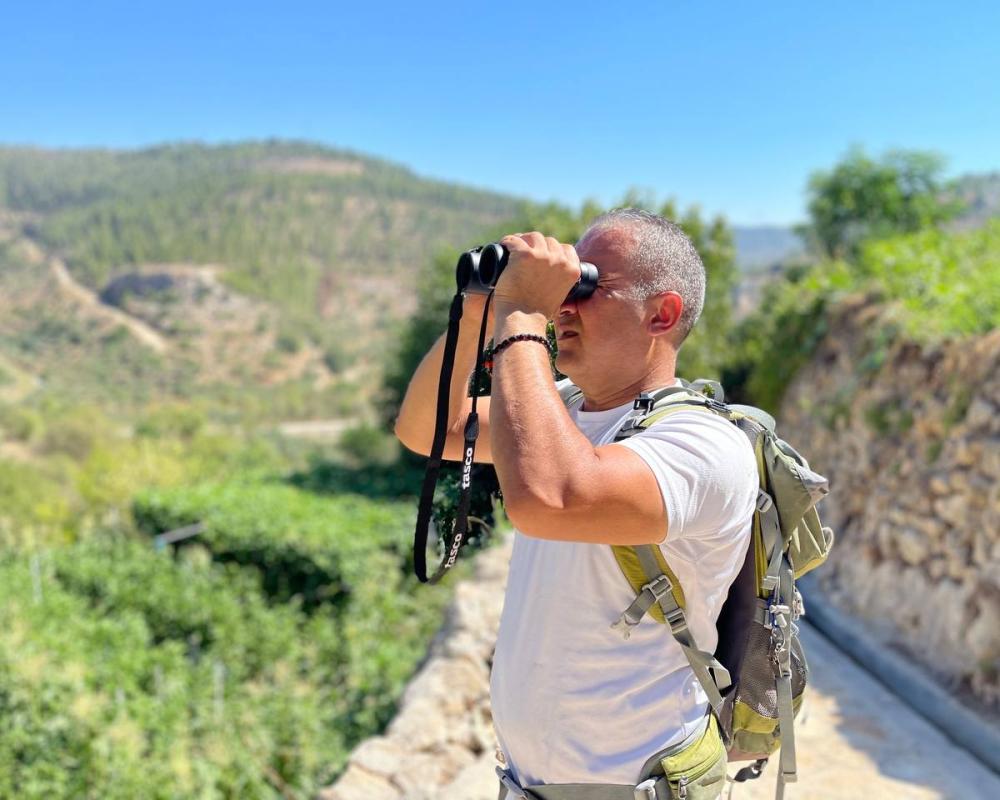
















Comments
No comment